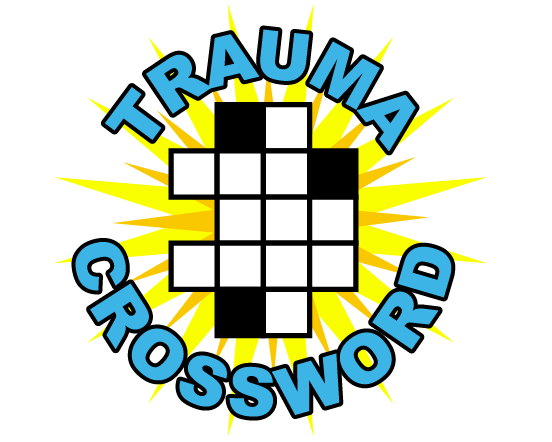|
*|MC_PREVIEW_TEXT|*
|

|
|
03/25/2025
|
|
IT’S TRAUMA TUESDAY
Is a Free Weekly Newsletter
Brought to you by
TCAR Education Programs
|
|
For nurses and other clinicians practicing anywhere
along the trauma care spectrum
|
|
|
|
|
|
Take a quick test of your trauma care knowledge
|

|

|

|
|
|

|
|
Article of the Week
Does DELAYED Intubation in Hemorrhagic Shock Save Lives?
|
|
Respiratory failure in hemorrhagic shock is a common problem, and its initial presentation may be subtle. This summary article suggests that noninvasive airway management techniques, rather than early intubation, may help stabilize the patient and reduce the risk of hemodynamic collapse.
|
|
|
|
Davis JA, Manoach S, Heerdt P, Berlin DA. Management of Respiratory Failure in Hemorrhagic Shock. Annals of the American Thoracic Society. Published online April 26, 2024. doi:10.1513/annalsats.202310-905cme
|
|
|

|
|
Trauma Happenings
TCRN, CCRN, CNRN, CNOR, CEN, CPEN, ONC, CTRN, CFRN, CCNS, CPAN, RN-BC, etc: Which one are YOU?
|
|
March 19 is Certified Nurses Day, so congratulations to all of you who have demonstrated excellence in your specialty area by achieving professional board certification. Are you currently uncertified or looking to add another credential? If you regularly care for injured patients, consider becoming a Trauma Certified Registered Nurse (TCRN) and show your peers, patients, and their family members that you've gone the extra mile to attain and validate your extensive trauma care knowledge. For information about the TCRN exam, click the link below. Do you have a colleague who is board-certified? Certified nurses are champions of excellence, and this is our annual chance to cheer them on!
|
|
|
|
|
![]()
|

|
|
No More Printed TCAR or PCAR Manuals
|
|
Say goodbye to the last of the printed TCAR and PCAR course manuals. You will no longer be able to purchase a copy on Amazon. The old manuals are obsolete since the recent release of the updated electronic versions. You'll find substantially more information in the new 2025 downloadable books that are included with your course. If you have online course access (i.e., you're within 1 year of starting a course), download a FREE updated version.
|
|
|
|
|
|
You can reveal a letter or the entire word if you get stuck
|

|

|

|
|
|
![]()
|

|
|
Is Continuous, Noninvasive Lactate Level Monitoring Coming to a Trauma Center Near You?
|
|
It's recently become the rage for athletes to monitor their lactate levels using a wearable device that continuously measures lactate levels in their sweat. What if we could take a similar tool and apply it to our critically injured patients? Because lactate and base deficit levels correlate with the degree of shock, continuous monitoring could serve as a shock-o-meter during resuscitation. Although not yet approved for clinical indications, this idea is being kicked around the medical world. Who knows if we'll see these monitors in use on our patients in a couple of years? Such a simple device could be a very helpful tool for identifying and treating shock. Click the link to see these gadgets.
|
|
|
|
|

|
|
|
|
|
|
Follow Us
Want to join the trauma care conversation?
Follow Us on Facebook, Instagram, and X.
|

|
|
|
|
|

|
|
TCAR Education Programs
tcarprograms.org
info@tcarprograms.org
Office: (503) 608-4900
International Toll-Free: +1 800-800-2015
|
|
Copyright © 2025 TCAR Education Programs. All rights reserved.
You are receiving this email because you opted in by purchasing or registering for a course or subscribing to our newsletter on our website.
Want to change how you receive these emails?
You can
update your preferences or
unsubscribe
|